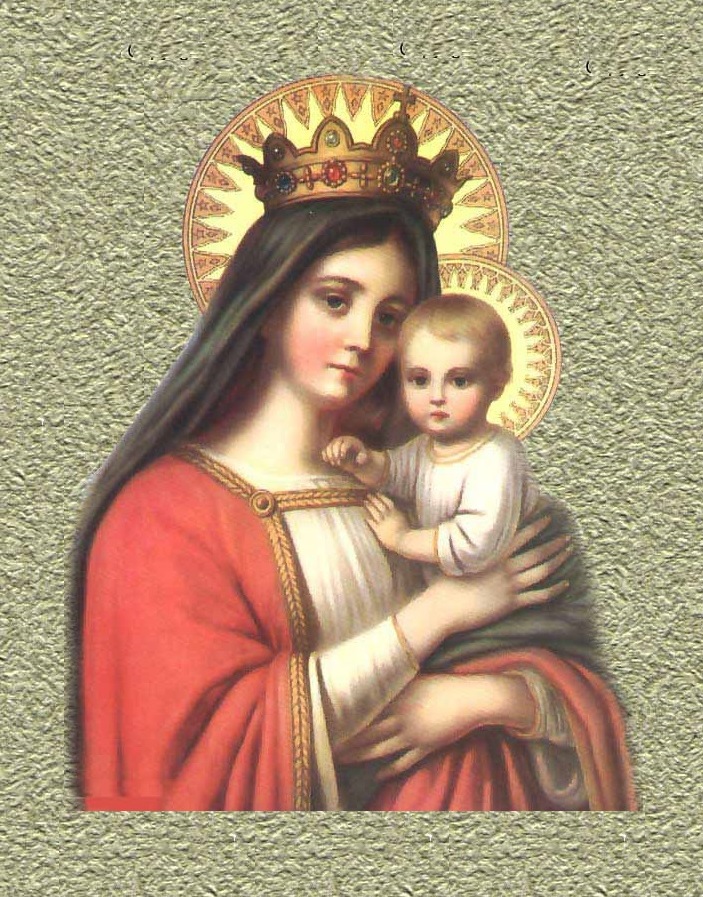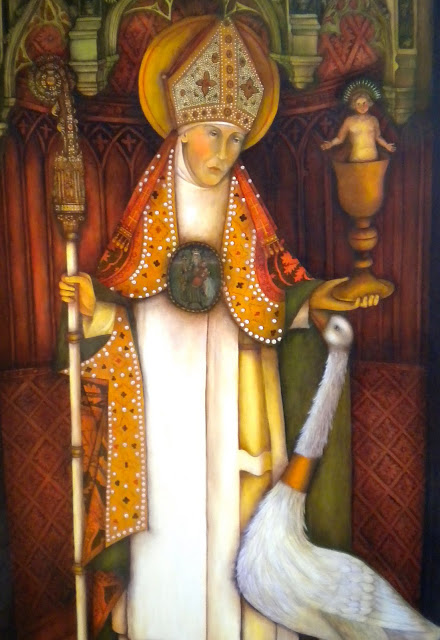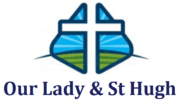Our Lady & St Hugh
Our Lady

Mary is a key figure within Christianity, but especially within Catholicism. Mary is the Mother of Christ. She agreed to God’s plan to bear his Son. We believe that Mary was able to carry the Son of God, as she was the Immaculate Conception.
The Catholic Church teaches that all humans are born with original sin, but Mary is the exception. As Mary was born free from original sin, her conception was considered to be immaculate and pure. We believe that only someone free from sin would be able to carry and give birth to the Son of God.
Mary is often described as the Mother of God. This title refers to her as the mother of Jesus who through the incarnation is also God. Mary also serves as an example of a mother to the rest of humanity. She supported Christ throughout his ministry and she was also there at the time of his death and resurrection.
Catholics do not worship Mary and in no way is she to be considered equal to God. However, she is greater than all else in Heaven because it was through her obedience in conceiving Jesus that He was able to reconcile the world to God by dying on the Cross. Instead, we pray and ask her to intercede on our behalf. This means that we ask Mary to join us in our prayers. We venerate Mary, which means that we show her respect and reverence.
One of the ways we do this is through praying the rosary, which consists of prayers including the ‘Hail Mary’. The months of May and October are also dedicated to Mary. During this time, the rosary will be prayed daily and devotion is shown to Mary.
St Hugh of Lincoln

Hugh of Lincoln was the son of William, Lord of Avalon. He was born at Avalon Castle in Burgundy and was raised and educated at a convent at Villard-Benoit after his mother died when he was eight. He was professed at fifteen, ordained a deacon at nineteen, and was made prior of a monastery at Saint-Maxim. While visiting the Grande Chartreuse with his prior in 1160, it was then he decided to become a Carthusian there and was ordained. After ten years, he was named procurator and in 1175 became Abbot of the first Carthusian monastery in England. This had been built by King Henry II as part of his penance for the murder of Thomas Becket.
His reputation for holiness and sanctity spread all over England and attracted many to the monastery. He admonished Henry for keeping Sees vacant to enrich the royal coffers. Income from the vacant Sees went to the royal treasury. He was then named bishop of the eighteen year old vacant See of Lincoln in 1186 – a post he accepted only when ordered to do so by the prior of the Grande Chartreuse. Hugh quickly restored clerical discipline, laboured to restore religion to the diocese, and became known for his wisdom and justice.
He was one of the leaders in denouncing the persecution of the Jews that swept England, 1190-91, repeatedly facing down armed mobs and making them release their victims. He went on a diplomatic mission to France for King John in 1199, visiting the Grande Chartreuse, Cluny, and Citeaux, and returned from the trip in poor health. A few months later, while attending a national council in London, he was stricken and died two months later at the Old Temple in London on November 16. He was canonized twenty years later, in 1220, the first Carthusian to be so honored.
